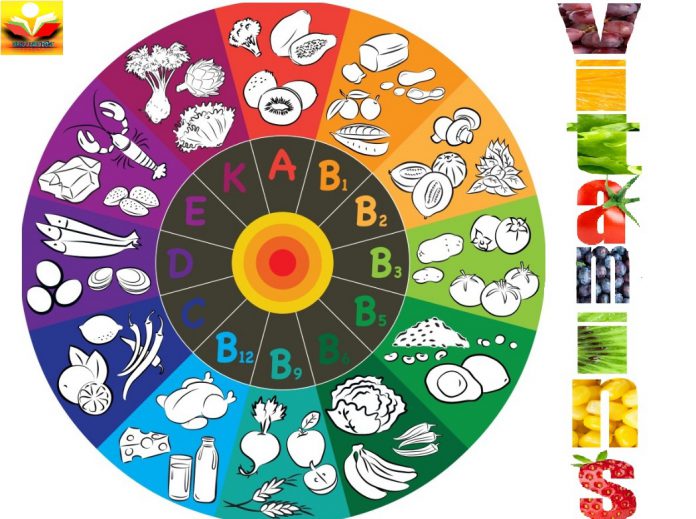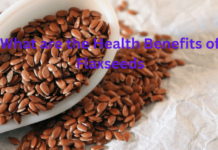Vitamin is not the new word to anyone. It is the vital organic compound which is needed by our body for proper functioning. These are the nutrients that our body need in order to perform necessary functions. Apart from the proper functioning, vitamins provide immunity i.e. ability to fight with diseases.
Why Do We Need Vitamins?
This question arises in everybody’s mind that why our body needs a sufficient amount of vitamins. Well, the definition of vitamins itself contains the answer. As already said, that vitamin provides immunity from diseases. It helps in the maintaining the health of our body. Apart from immunity and health, vitamins are necessary for our normal growth. It should be noted that vitamins are such substances that cannot make within the body and, therefore, we need to take it from outside i.e. from the food we eat.
How do we get Vitamins?
Vitamins are the organic compounds which are present in the ample amount of the food we eat. We don’t need to make them or prepare them by any special process. The different food contains different vitamins such as citric food contains vitamin C, dark leafy vegetables contain vitamin A, whole grains contain vitamin B etc. Excess of everything is bad, therefore, vitamins should be taken in the limited amount.
Types of Vitamins:
Vitamins are of two types i.e. Fat Soluble Vitamin and Water Soluble Vitamin. Fat Soluble Vitamins are stored in the fat cells of our body and come into action every time whenever needed. On the contrary, water-soluble vitamins are not stored in our body and replenished from our body on the regular basis.
Fat Soluble Vitamins:
Vitamin A, D, E and K are referred as the fat – soluble vitamins. Such vitamins are stored in the liver and the fatty tissues, therefore, there is no need to take these vitamins on the daily basis. It should be noted that as these vitamins are stored in our body, therefore, it should be taken in the limited amount. An overdose of such vitamins can be harmful.
Vitamin A
Vitamin A is needed for the proper growth of our body. It is also helpful in maintaining our mucous membrane which is essential to stop bacteria and viruses from entering our body. Apart from this, vitamin A is good for our eyes. Also, this vitamin is an antioxidant which means that it protects us from the effect of free radicals. Orange coloured fruits and vegetable and dark leafy vegetables are the rich sources of this vitamin.
Vitamin D
Vitamin D is essential for proper utilisation of phosphorous and calcium in our body. As it is concerned with calcium, therefore, it is directly related to the development of the strong teeth and healthy bones. Dairy products such as milk, curd etc and oily fishes such as sardines, salmon etc are the rich source of this vitamin.
Vitamin E
Vitamin E plays the role of antioxidant in our body. It is a kind of fat soluble vitamin and fights from the effects of free radical. It prevents diseases development in our body and repairs the damaged skin. It helps in strengthening capillary walls in our skin and improves moisture and elasticity. Foods such as nuts, wheat germ oil, eggs, fortified cereals etc are the rich source of vitamin E.
Vitamin K
Last but not the lease fat-soluble vitamin is Vitamin K. This is the vitamin for blood clotting and prevents excessive bleeding from the cut and wounds. It also prevents the formation of kidney stones. Apart from this, vitamin K is also helpful in elevation of bones mass thus preventing osteoporosis. Meat, legumes, soybeans, vegetables etc are the rich source of this vitamin.
Water – Soluble Vitamins
Vitamin B and C and known as water –soluble vitamins. As such vitamins are excreted from our body on the daily basis, therefore, it should be taken regularly so as to maintain the proper level.
Vitamin B
Vitamin B is further divided into 8 parts i.e. B1, B2, B3, B5, B6, B7, B9 and B12. All these are water –soluble vitamins and perform different functions. Basically, vitamin B helps in promoting the healthy nervous system. Vitamin B1, B2, B3, and B6 helps in proper digestion and help in manufacturing HCL in our stomach. Whole grains, eggs, leafy vegetables etc are the rich source of this vitamin.
Vitamin C
This vitamin helps in the production of collagen which we need for healthy skin, teeth, gums, and blood vessels. It is an antioxidant and helps in preventing long – term tissue damage. Citric food such as orange, grapefruit, green and red pepper etc are the main source of this vitamin.
Diseases Caused by the deficiency of Vitamins:
Intake of the vitamin is necessary as deficiency of these vitamins cause various diseases. it should be noted that the deficiency of different vitamin cause different disease and, therefore, it is important to consume all the vitamins in the proper amount.
| Deficiency of Vitamin | Disease |
|---|---|
| Deficiency of Vitamin A causes | Night blindness, growth retardation, anxiety, depression, nerve damage, anaemia, bladder problems, skin disorders |
| Deficiency of Vitamin B causes | Hair fall, stomach problems, nerve damage, muscle spasm, fatigue |
| Deficiency of Vitamin C causes | Digestive disorders, joint ache, slow healing of wounds, loss of appetite, weakness |
| Deficiency of Vitamin D causes | Weak bones, rickets, osteomalacia, sleeplessness |
| Deficiency of Vitamin E causes | Problems related to reproductive system, renal deterioration, cardiac problems, skin disorders |
| Deficiency of Vitamin K causes | Blood clotting problems |












